Is LinkedIn Scraping Legal? Key Laws and Best Practices
This makes LinkedIn a goldmine of leads waiting to be tapped into.
But is it legal to scrape LinkedIn data?
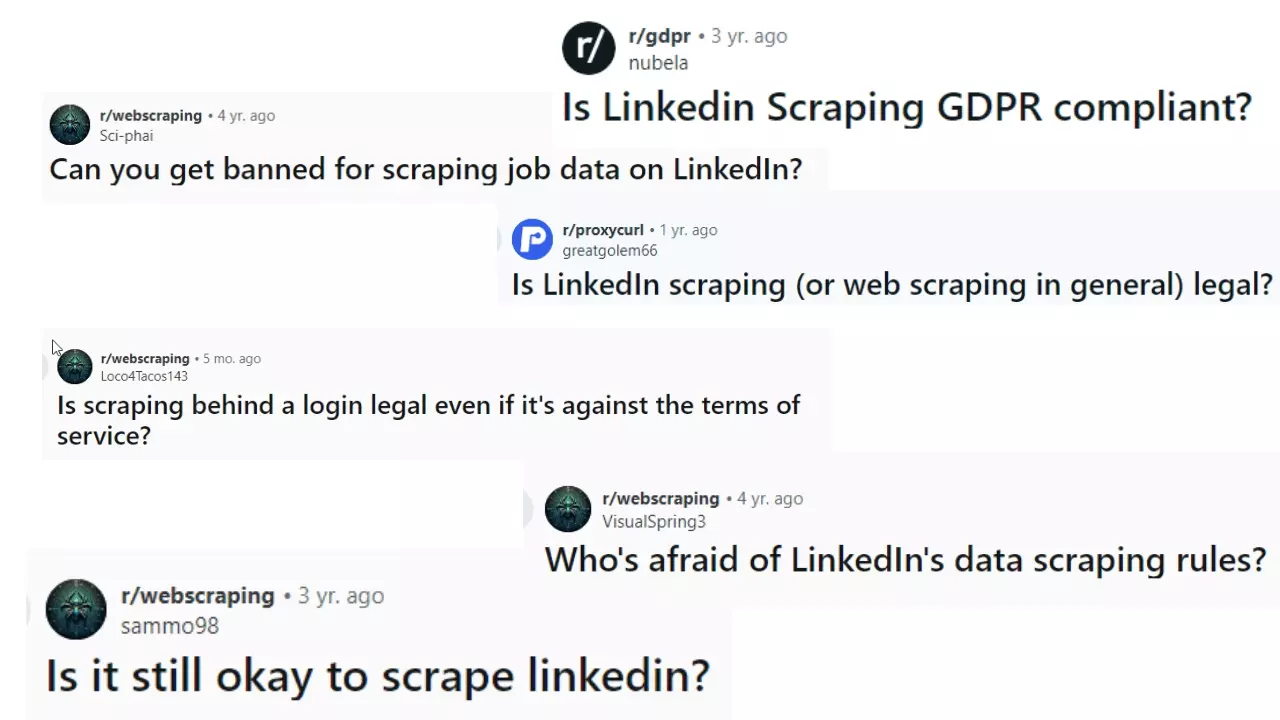
That’s what we’re going to find out today.
Disclaimer
This content is based on publicly available information and does not constitute legal advice. The opinions expressed are solely those of the author and are not a substitute for legal guidance.
For advice tailored to your specific project, country, or legal needs, please consult with a qualified legal professional.
In this article, I’ll help you understand the legality of LinkedIn scraping, the key laws involved, and best practices.
We’ll learn:
- Does LinkedIn allow web scraping?
- Is it legal to scrape LinkedIn data?
- How to scrape LinkedIn data responsibly?
But before that, let’s settle the debate.
The big question: Is LinkedIn scraping legal?
The short answer is Yes. Though LinkedIn doesn’t allow it, it's legal if done properly.
Scraping public data ✅ is fully legal.
Scraping private data?
- Have legit access ✅
- For personal use ✅
- Sell or distribute ❌
- Using fake accounts ❌
Didn’t get my point?
Let’s dive into the details, starting with understanding web scraping.
What is web scraping?
Web scraping means automating data collection from a website using a bot.
A web scraper eliminates the need to manually copy information into a spreadsheet, allowing you to extract data quickly and at scale.
This data can include anything publicly available on a website, such as names, contact information, or product information.
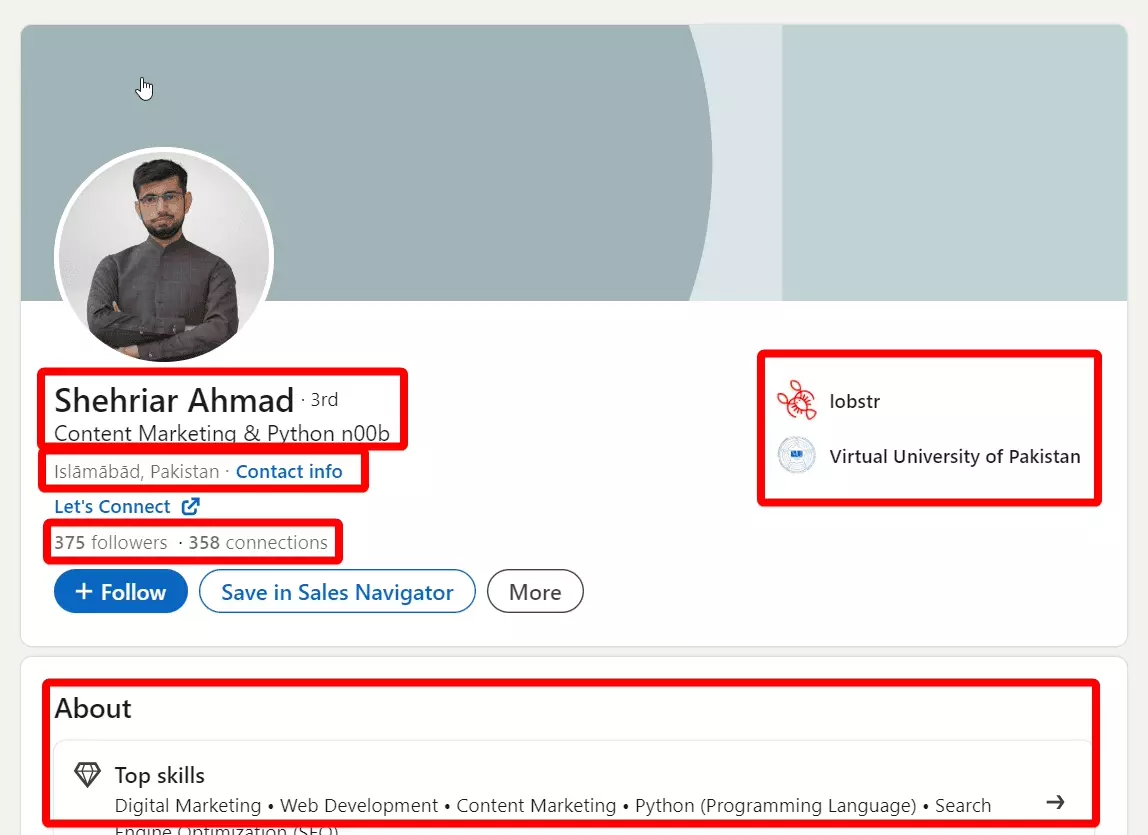
How does a web scraper work?
A web scraper (aka crawler or bot) visits web pages, extracts the HTML code, and identifies the data you need based on predefined rules.
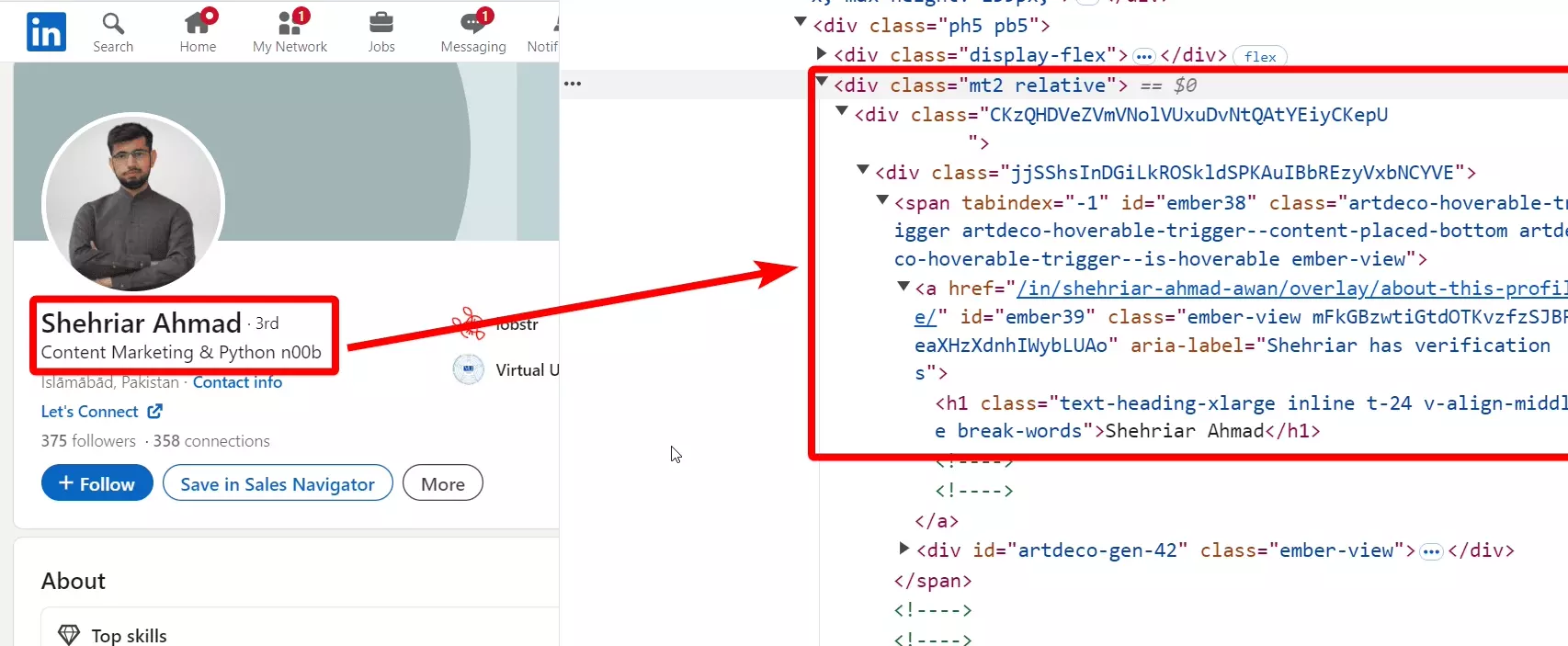
These scrapers are designed to navigate pages just like humans, but much faster.
Once the scraper retrieves the data, it can save it in a structured format like a spreadsheet or database for further use.
For example, if you're scraping LinkedIn, a scraper could pull data such as names, job titles, company information, or profile URLs from public profiles or search results.
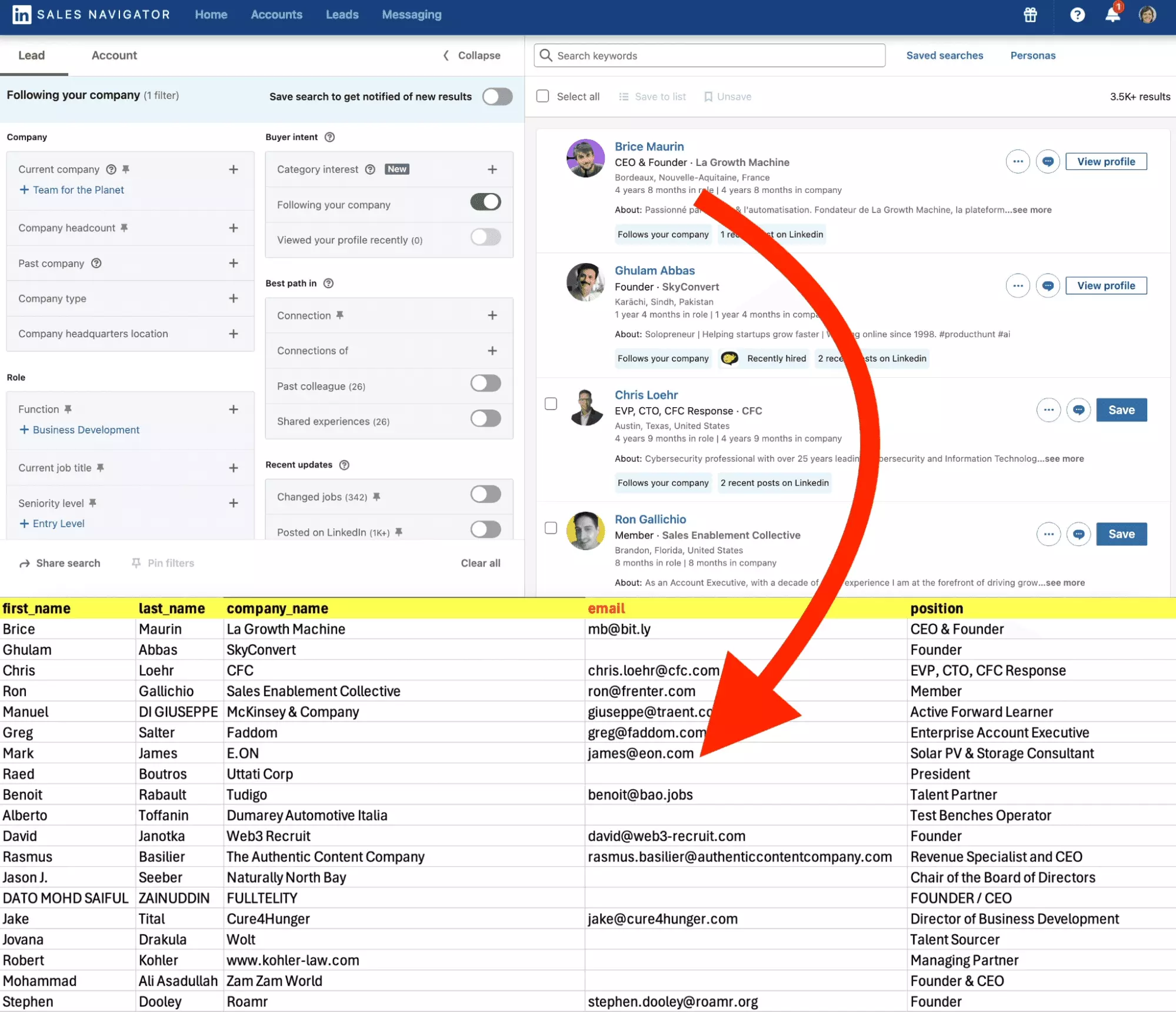
But why do we need a LinkedIn scraper?
Why scrape data from LinkedIn?
LinkedIn is a goldmine of professional data. Many businesses scrape LinkedIn for various reasons like:
- Generate leads by collecting potential customer information
- Find qualified candidates for job openings
- Market Research for industry trends and competitors
But why parse HTML code instead of using the official LinkedIn API?
Why not use the official API for data collection?
The first question is – Is there no LinkedIn API for collecting data officially?
But it’s basically useless due to reasons like:
- Poor documentation
- Limitations
- Exclusivity
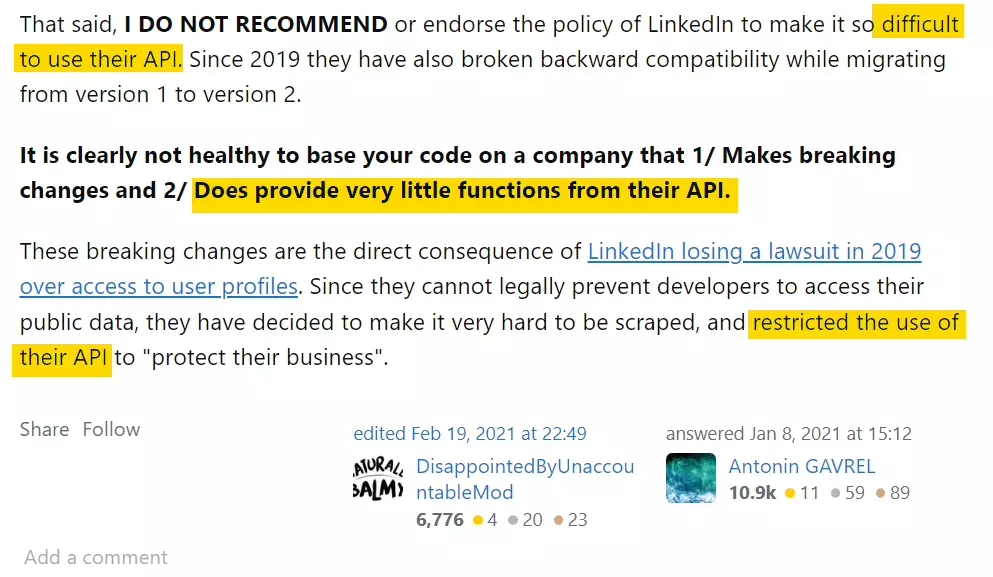
The documentation is so poorly written, the developers find scraping data by parsing HTML code easier.
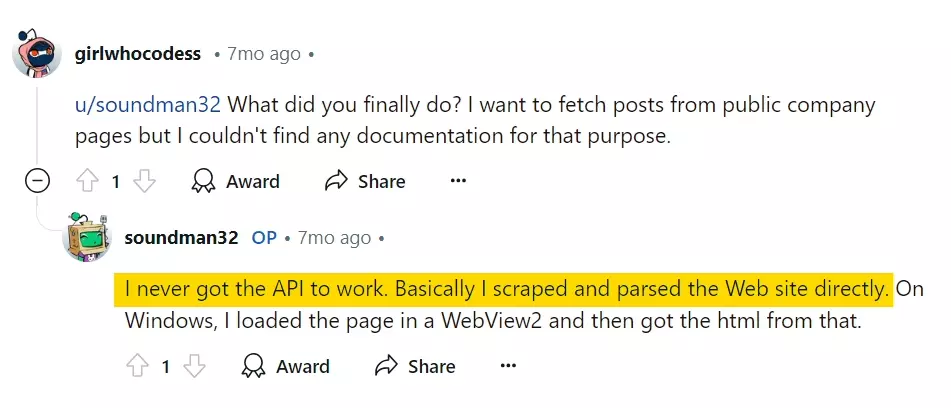
Even if you understand the documentation, it only provides very basic profile data. Access to data like contact details is not allowed.
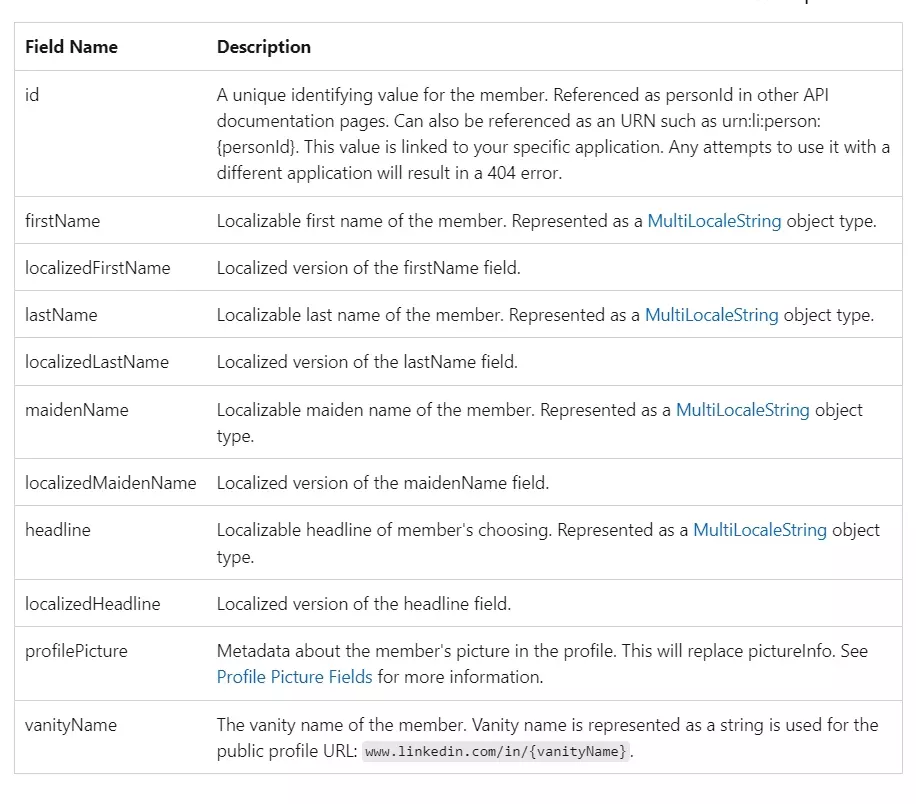
Even if that’s OK for you, there’s another limitation.
You can only retrieve data from users who have explicitly authorized your application.
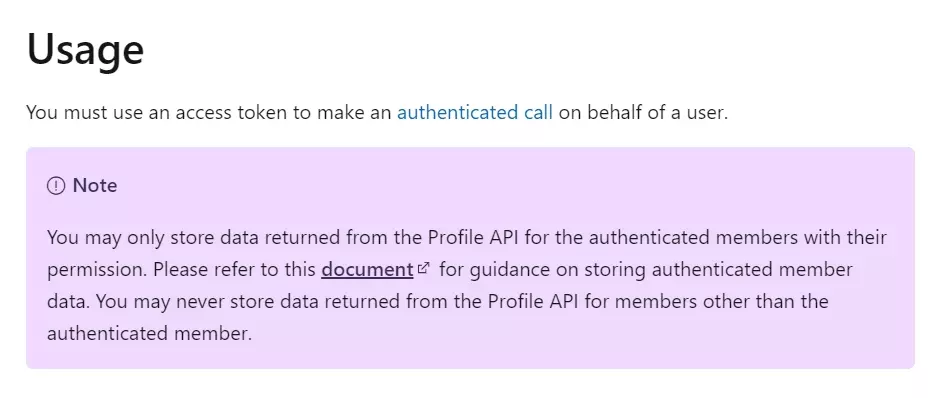
And if that’s also manageable, there’s another catch.
The API is exclusively available to developers approved by LinkedIn and the approval process is also a mystery.
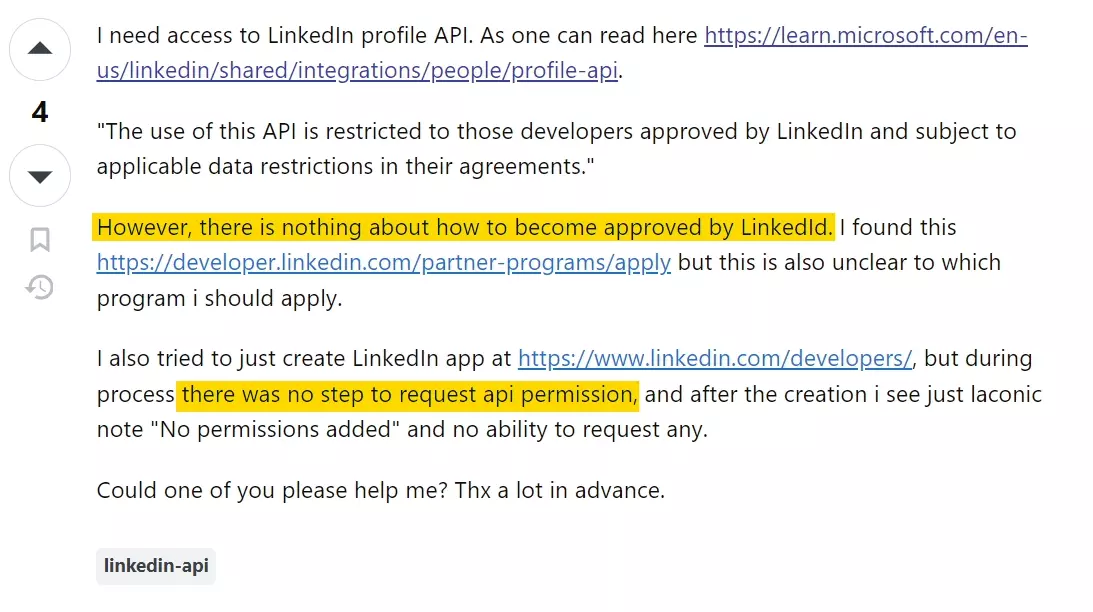
The only option left is using a LinkedIn data scraper to collect data at scale.
But does LinkedIn allow it?
Does LinkedIn allow data scraping?

But what’s the reason?
Why does LinkedIn restrict scrapers?
LinkedIn has some pretty good reasons to restrict web scraping or automated access to its platform like:
- Protecting its business model
- Keeping the platform running smoothly
- Avoiding security risks
- Protecting user privacy
So does that mean I can get banned for scraping LinkedIn?
Can you get banned for scraping LinkedIn data?
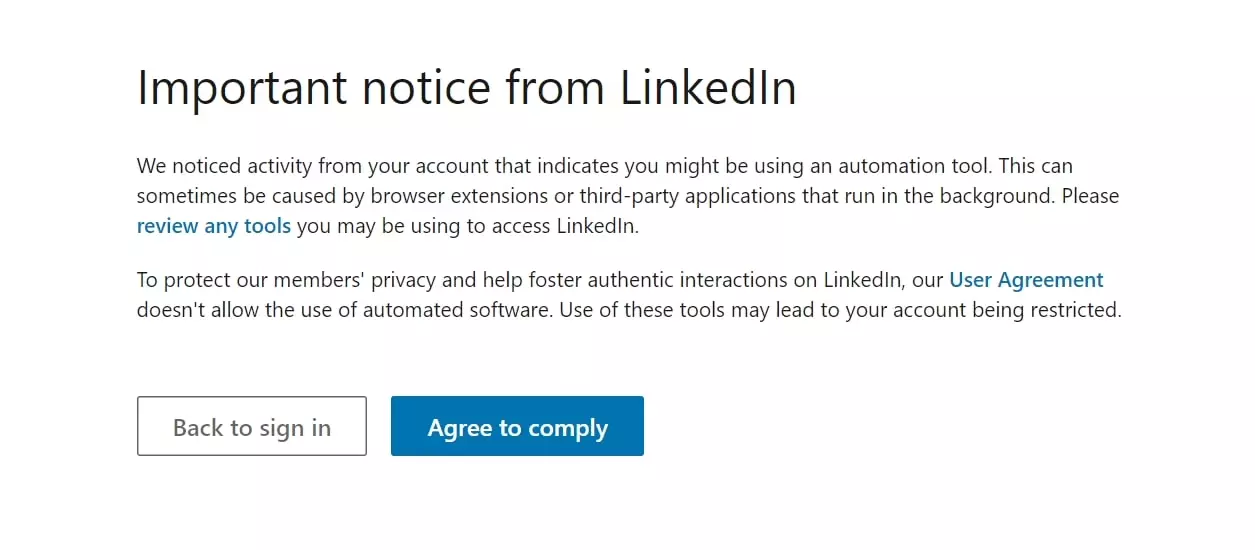
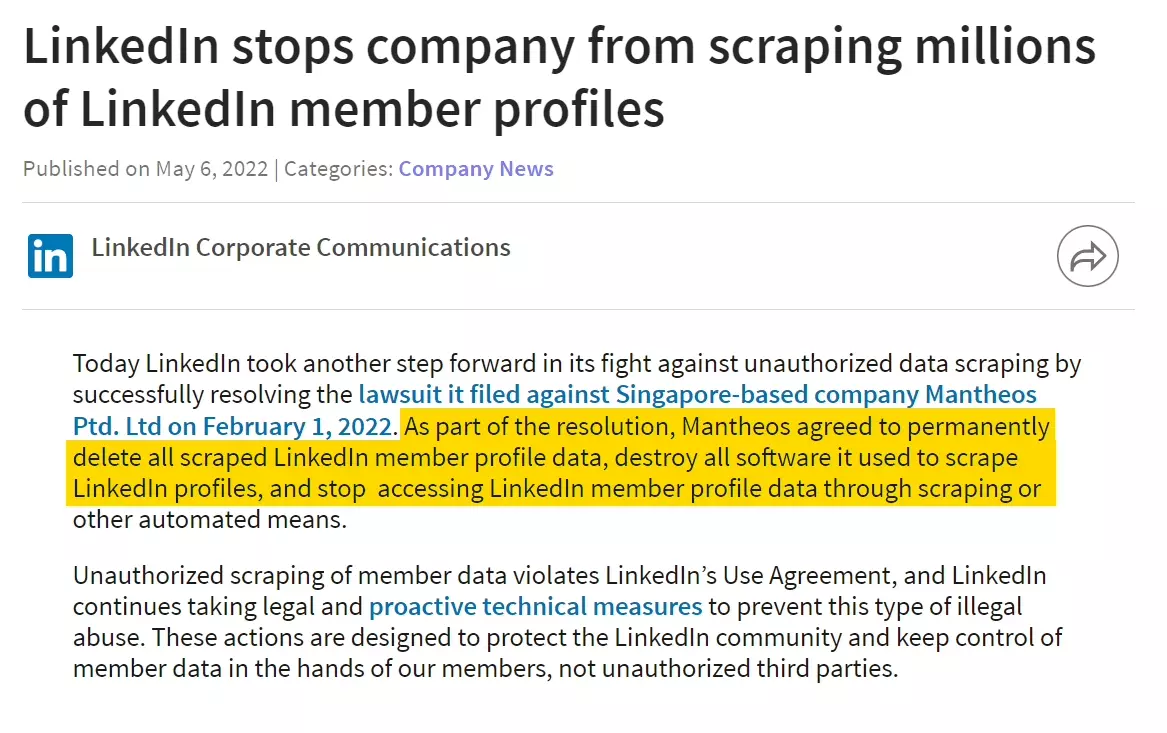
Wait, can I face legal action for collecting data from LinkedIn? This clearly means it’s illegal to scrape LinkedIn data.
Well that’s what LinkedIn says, there’s more to the story.
Is it legal to scrape LinkedIn data?
LinkedIn vs Mantheos
Mantheos is a business intelligence company that provides insights on individuals and companies.
LinkedIn claimed that the company used hundreds of fake profiles and virtual debit cards with fake names to fraudulently obtain LinkedIn Sales Navigator subscriptions.
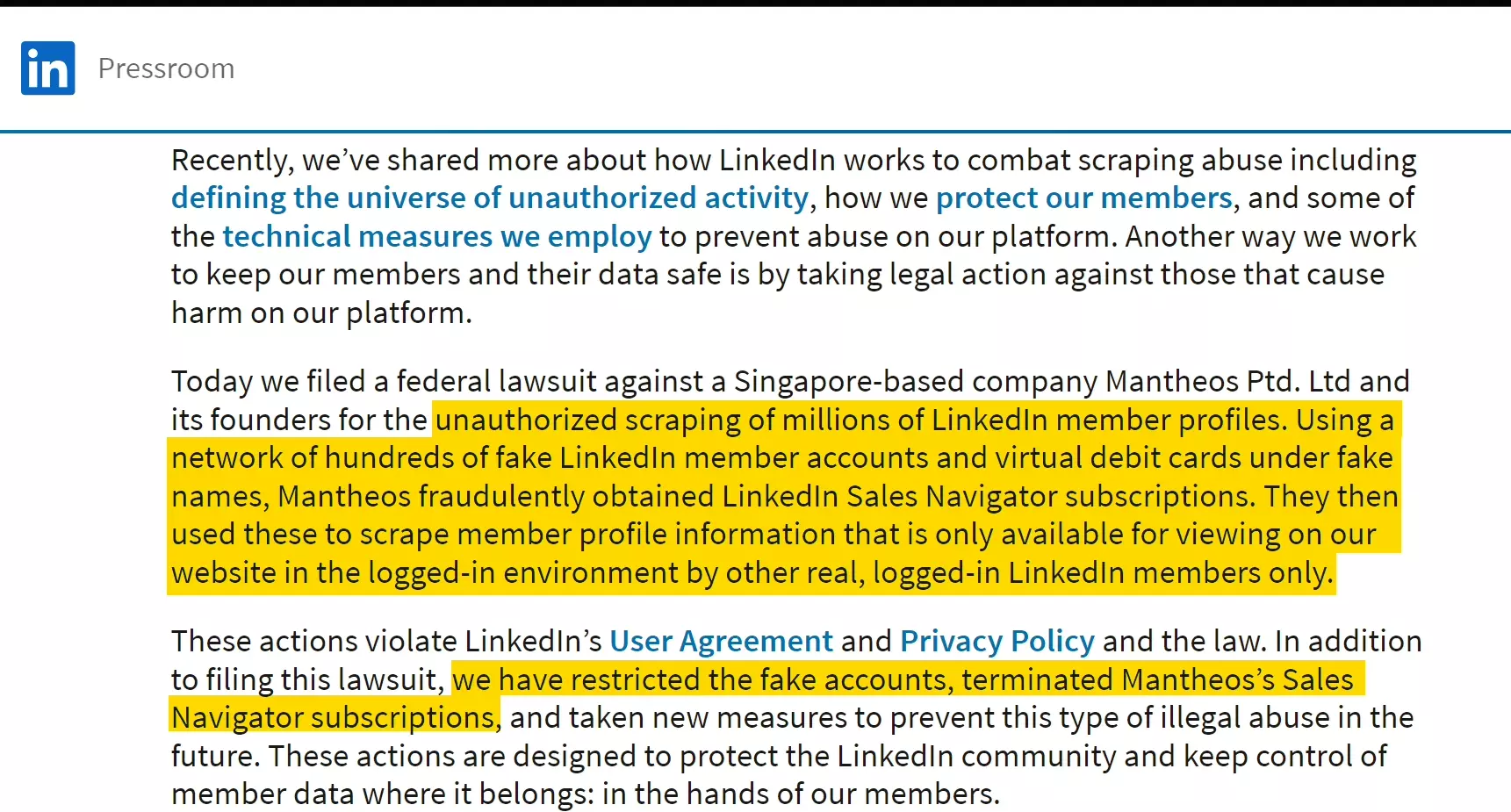
The company used these to scrape member profile information that was only available to real and logged-in LinkedIn members.
The case was settled, with Mantheos agreeing to a permanent ban from scraping LinkedIn or using its data.

They also had to destroy all the LinkedIn data they had collected.
So what did we learn from this lawsuit?
Sales Navigator is a premium product and a big chunk of LinkedIn’s revenue comes from this product. Only paying users are allowed to view its data.
Mantheos accessed Sales Navigator data through fake accounts and distributed it commercially to those who didn’t pay for Sales Navigator.
This obviously hurts LinkedIn’s business. Why’d I pay for Sales Navigator if Mantheos is providing me the same data without a LinkedIn premium account?
So it indeed falls under illegal web scraping and has serious consequences.
Basically we learned:
- Using fake accounts is not OK ❌
- You cannot collect and distribute content behind paywall ❌
But does this mean scraping LinkedIn data is illegal?
Not exactly. The LinkedIn vs HiQ case shows a different side of the story.
HiQ vs LinkedIn

HiQ Labs, a data analytics company, used this data to help businesses with employee retention strategies.
In response, HiQ Labs filed a lawsuit against LinkedIn, requesting the court to stop LinkedIn from blocking its access to public LinkedIn profile data.
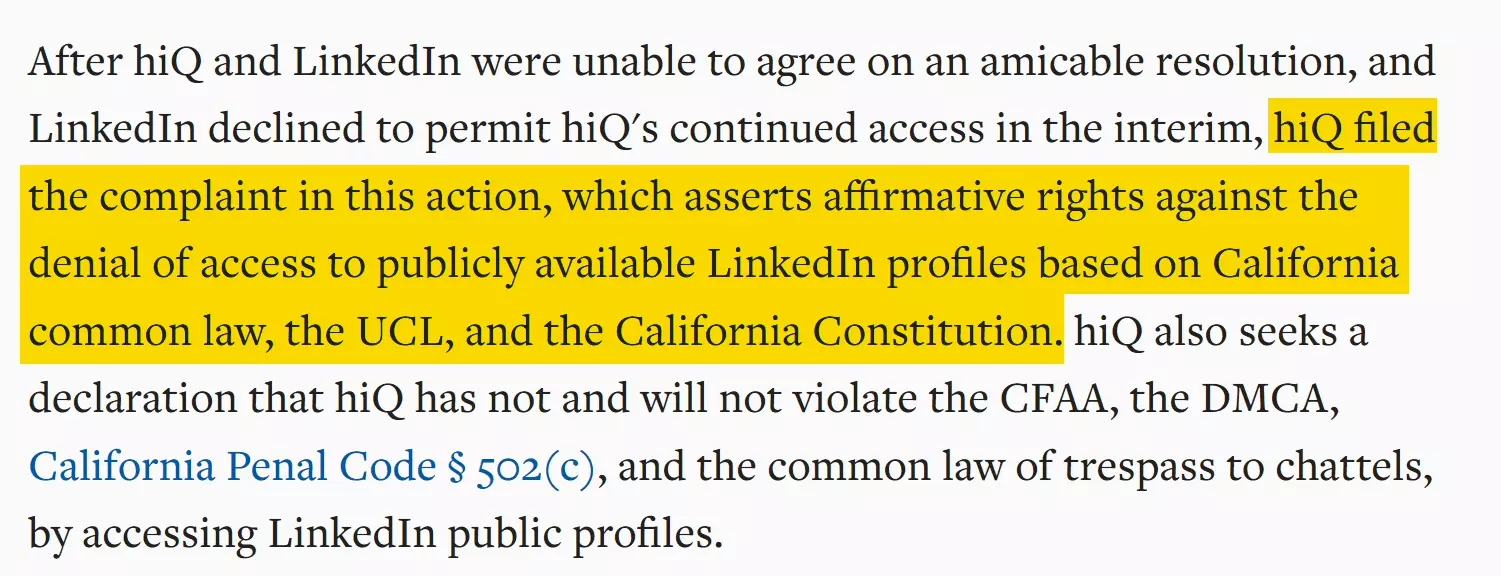
They claimed that publicly available data should remain accessible to anyone, and LinkedIn could not stop them from using it.
The court said LinkedIn couldn’t block access to publicly available information using the CFAA.
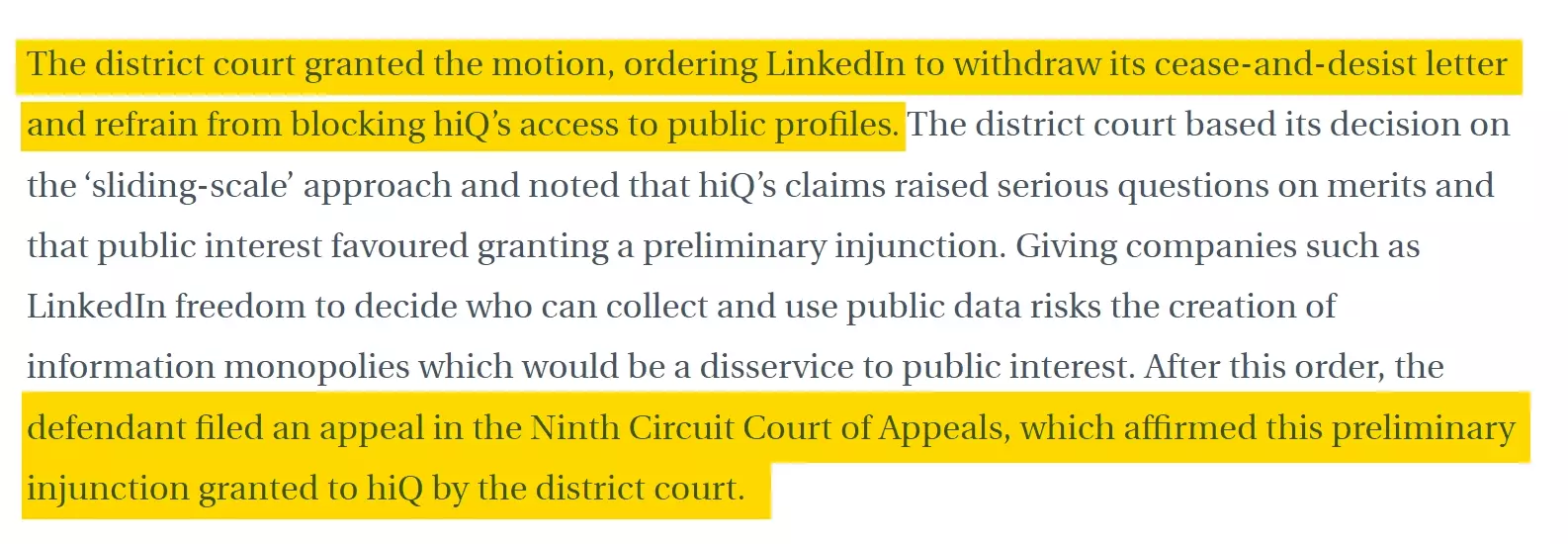
In 2019, the Ninth Circuit agreed with the lower court’s decision, saying public profiles don’t fall under CFAA protection.
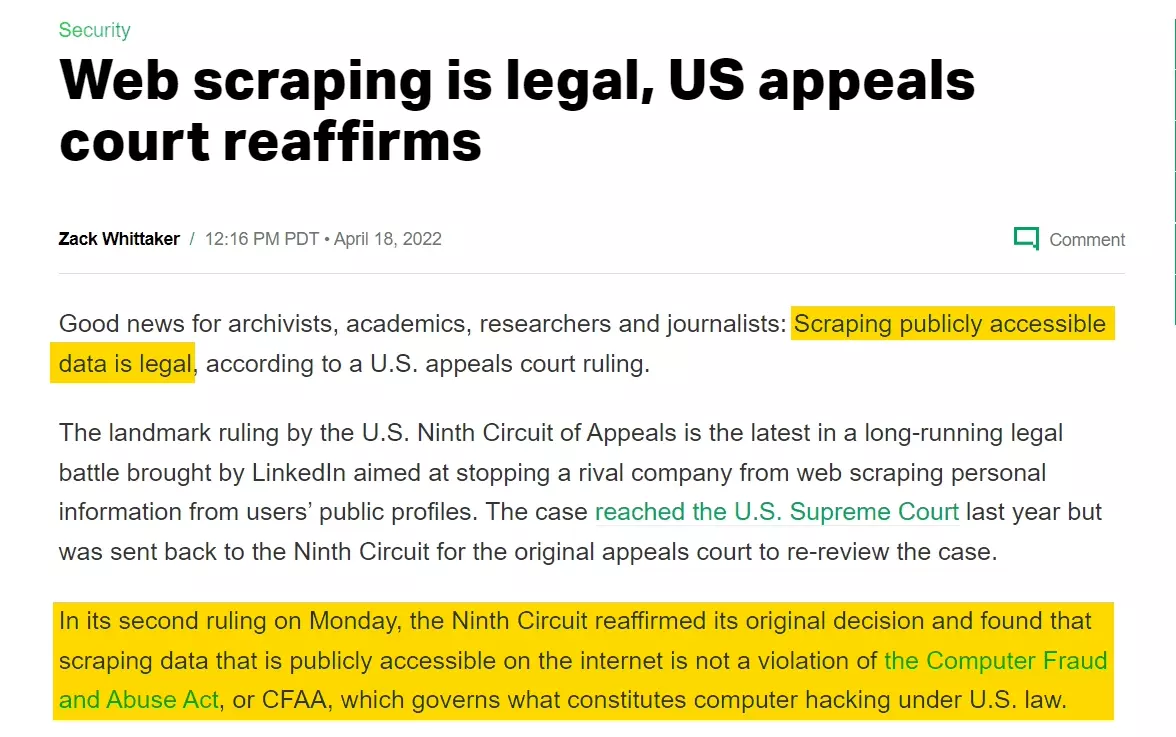
So what did we learn from this case?
It clearly established the fact that public social media profiles are not private data. This legal battle also gave us 2 important learnings about legality of scraping LinkedIn data.
- Web scraping is legal practice in general ✅
- Scraping LinkedIn profiles is allowed ✅
But LinkedIn used CFAA to sue HiQ, what’s CFAA?
Let’s learn some key laws related to data privacy.
Key laws related to data protection and privacy
There are a ton of laws out there when it comes to data privacy and protection. In this section, I'm focusing on the most important ones in the U.S. and EU.
Computer Fraud and Abuse Act (CFAA)

Why it matters for web scraping?
From the HiQ vs LinkedIn case, we know that scraping public data doesn't violate CFAA.
But there are some rules you must follow to scrape data.
- Don’t hack or use unethical ways to access data
- Breaking website terms is not (automatically) bad
Another important law regarding data privacy in the US is CCPA.
California Consumer Privacy Act (CCPA)
The CCPA is a privacy law that applies to businesses handling the personal data of California residents.
It was introduced to give people more control over how their data is collected, stored, and shared.
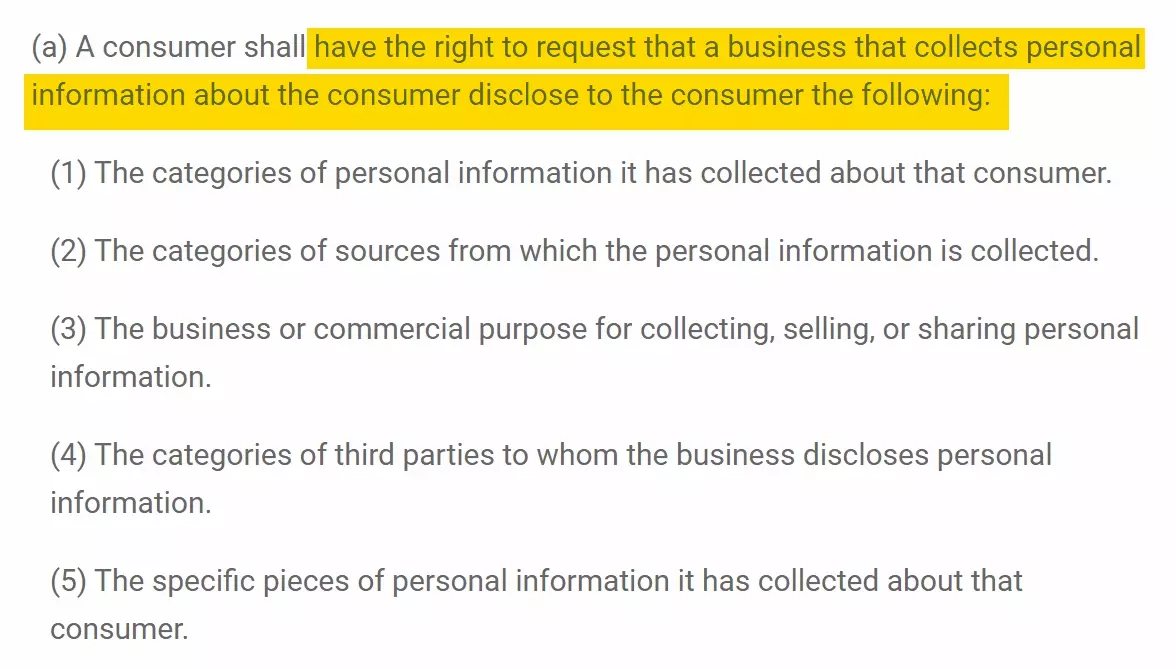
It also allows California residents to request deletion of their data.
Why it matters for web scraping?
This law doesn’t directly deal with scraping. It doesn’t restrict scraping of publicly available data.
But it does put some restrictions on how the data can be collected and stored.
- Users must be informed if their data is being collected
- California residents can request to delete their data
- Scrapers and businesses need to offer opt-out options
Here are some other key laws in the U.S. related to web scraping:
- Economic Espionage Act (EEA) – Protects trade secrets; scraping business data without permission can violate this
- California Penal Code Section 502 – Criminalizes unauthorized access to systems in California
- Trespass to Chattels – Applies when scraping damages or overloads a server
- CAN-SPAM Act – Regulates the use of scraped emails for marketing
But what about web scraping in the EU?
Is LinkedIn scraping GDPR compliant?
It sets strict rules on how businesses can collect, store, and use data from individuals, including when scraping publicly available information.
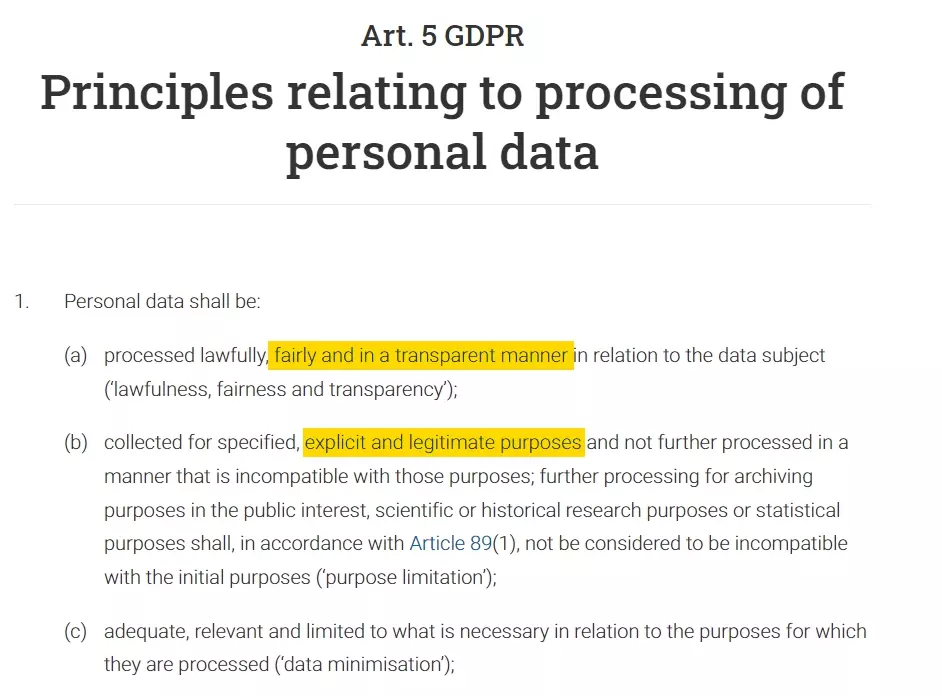
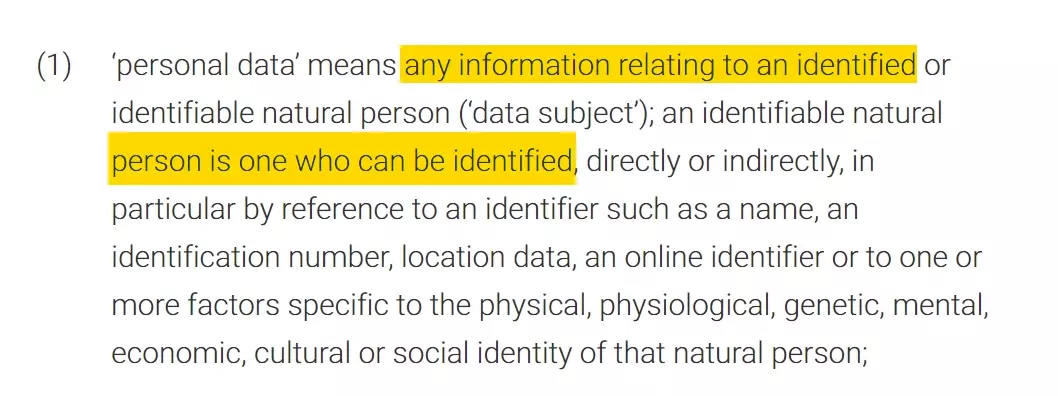
GDPR also gives people the right to ask you to delete their personal data.
Why it matters for web scraping?
GDPR doesn’t prohibit scraping public data. It mainly defines personal data and rules of collecting and storing personal data.
- Defines personal data as anything that identifies an individual
- Scraping personal data of EU citizens requires explicit consent
- Only collect data that you need, no over collection
- Gives individuals the right to request deletion of their data
- Requires data protection throughout its lifecycle
Here are some other EU data protection and privacy laws that could impact web scraping activities.
- Database Directive – Protects databases from unauthorized data extraction
- ePrivacy Directive – Regulates data collection through cookies, impacting scraping that tracks user behavior
Copyright laws
Copyright laws, especially in the U.S., protect original works of authorship—like creative writing or images.
Companies like LinkedIn and Meta often try to use this law against web scrapers.
They might argue that their user-generated content, databases, and structured information are protected by copyright.
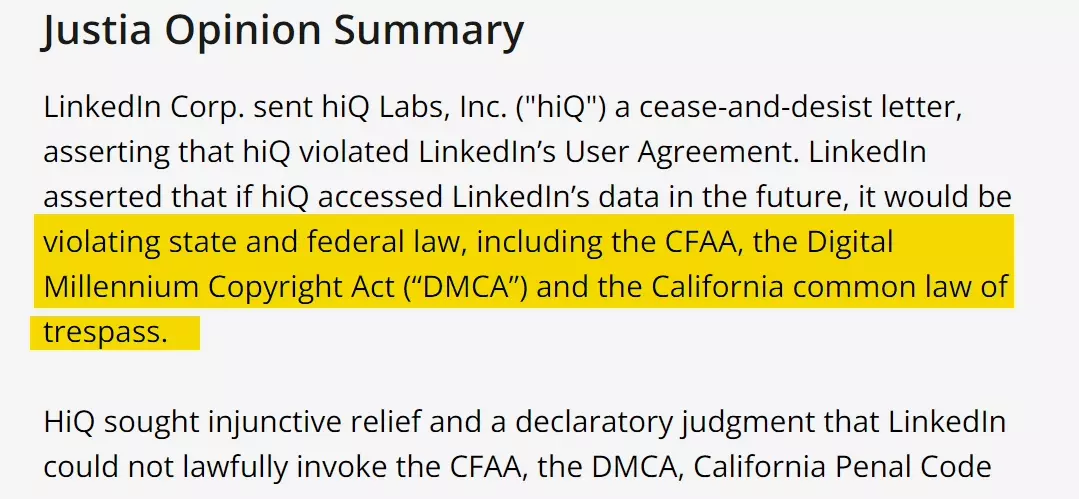
Why it matters for web scraping?
Copyright doesn’t protect facts or basic data points.
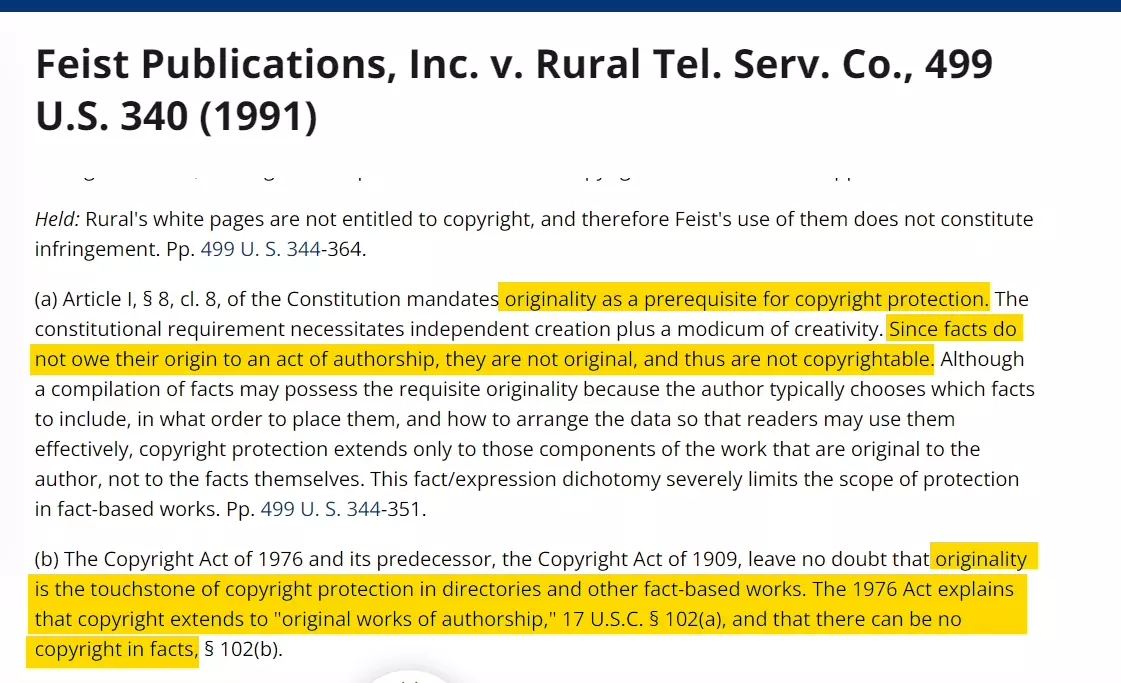
Laws like DMCA might help companies stop scrapers from redistributing content without permission.
But DMCA does not stop companies from scraping non-creative data, like facts.
In the European Union, the Database Directive gives more protection to databases.
But this applies only if there’s been a substantial investment in creating or maintaining the database.
It still doesn’t protect the individual data points—only the structure and organization.
So in the U.S. or EU, copyright law doesn’t cover the data itself. The facts and information can be scraped.
So what we’ve learned from these laws?
- Scraping public data is generally fine
- Using fake accounts is NOT OK
- People can request you to delete their personal data
- Purpose and usage of data makes it legal or illegal
- Scraping non-copyrighted data is allowed
But how do I differentiate between data I can scrape and data I can’t scrape?
Public vs Private data: Where to draw the line?
So far we know data can either be public or private. Let’s see what type of data can be scraped and where to draw the line.
Public data

This data is often found on websites, public records, or anything the owner chooses to share openly.
Social media profiles are often considered publicly available data sources even if you need to login to the social media platform.
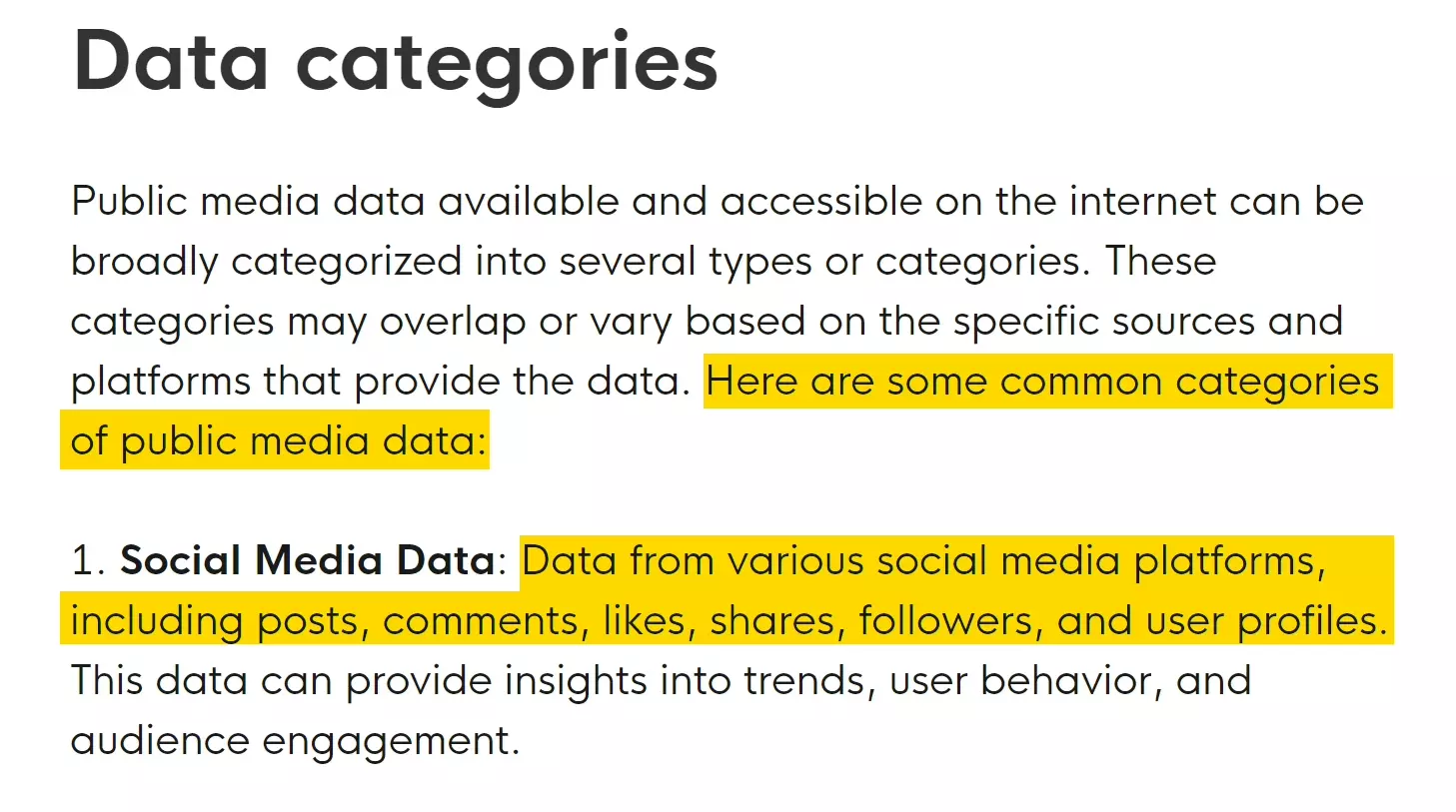
On LinkedIn, public data includes info users have made visible to everyone on their profile, like names, job titles, education, experience, and company details.
Users often make this public to help with networking and increase their visibility.
Private data

On LinkedIn, private data can include messages, private posts, group activities, etc.
So can we scrape private data?
It’s legal to collect private data as well as long as:
- You have legit access to it
- You respect personal data processing laws
- You don’t distribute it without permission
Have legit access
From all the laws and lawsuits I’ve discussed above, we know one thing for sure – using fake accounts is not ok.
But what if I have access to the data?
If the information is visible to you as a regular user of the platform, scraping that data for personal use can be acceptable.
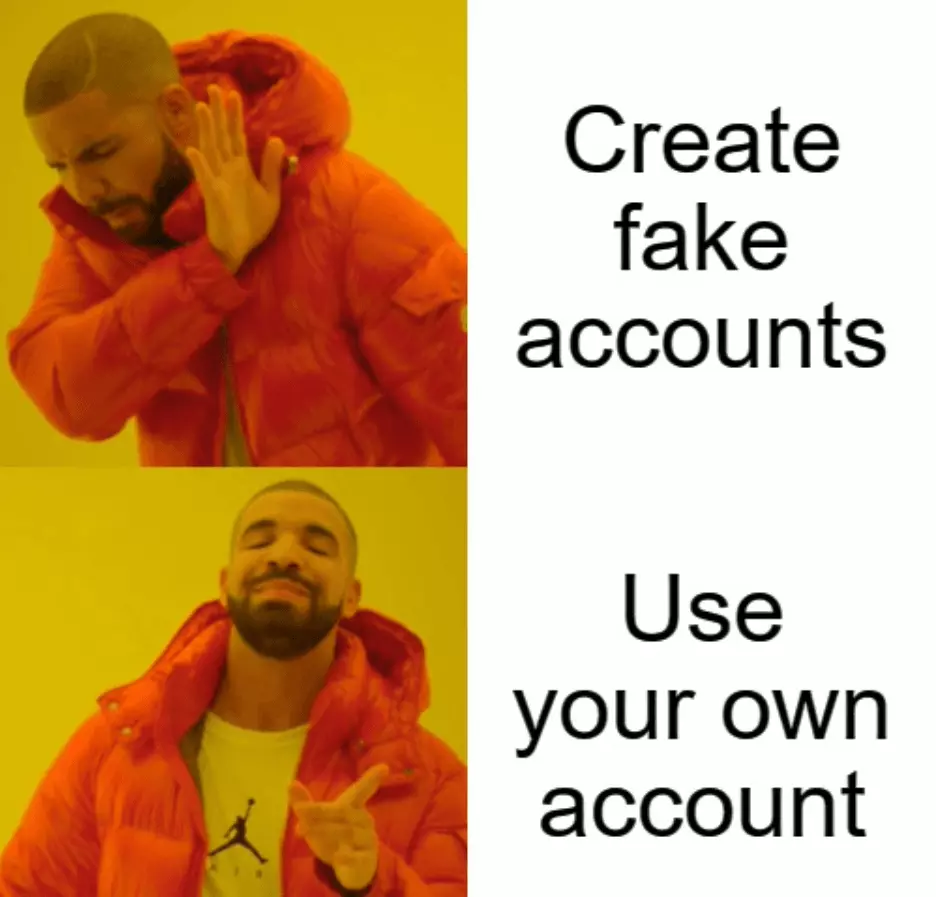
This means as long as you’re using your own account and collecting data you’re allowed to see, it’s legal.
But you shouldn’t use any fraudulent methods or create fake accounts to gain access to the data.
Respect data processing laws
You must follow laws that protect personal data. These laws require that personal data, like names and emails, be handled responsibly.
- Have a legit purpose
- Don’t over collect
- Store data securely
Make sure you don’t overload LinkedIn’s system with excessive data collection. Collect what you need and have access to, at a small scale.
Don’t distribute without consent
If you’re scraping private data, you should only use it for your own personal or business purpose.
Do not distribute or sell it without explicit permission.
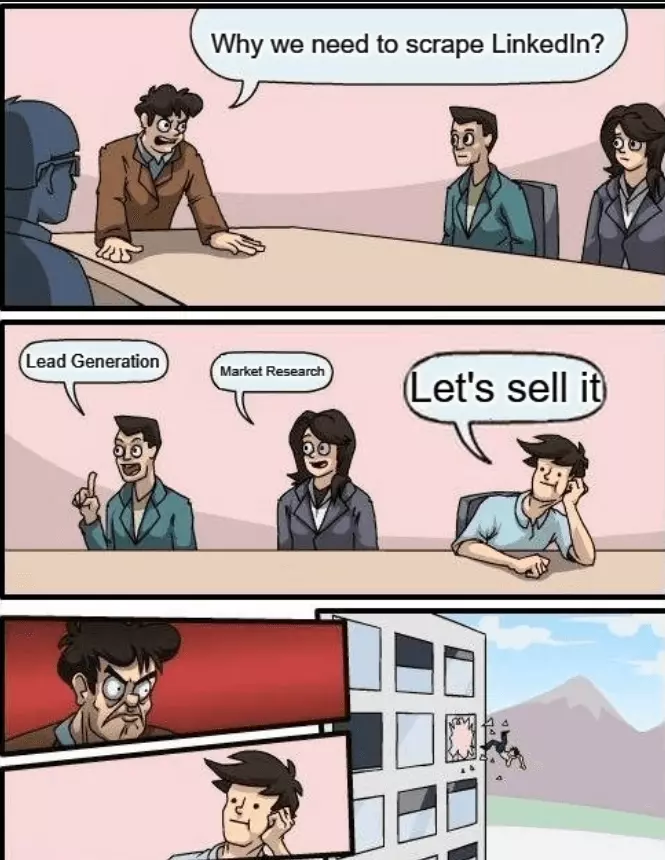
Since you’re able to view the data, you have legitimate access to it. You can collect it for personal use.
But when you start distributing the collected data, you’re now sharing the data limited to you with people who don’t have access to it.
That’s a bad practice and you need to avoid it at all costs when dealing with private data.
So what about Sales Navigator?
Is it legal to scrape data from Sales Navigator?
Sales Navigator is LinkedIn’s paid service that offers advanced tools for lead generation.
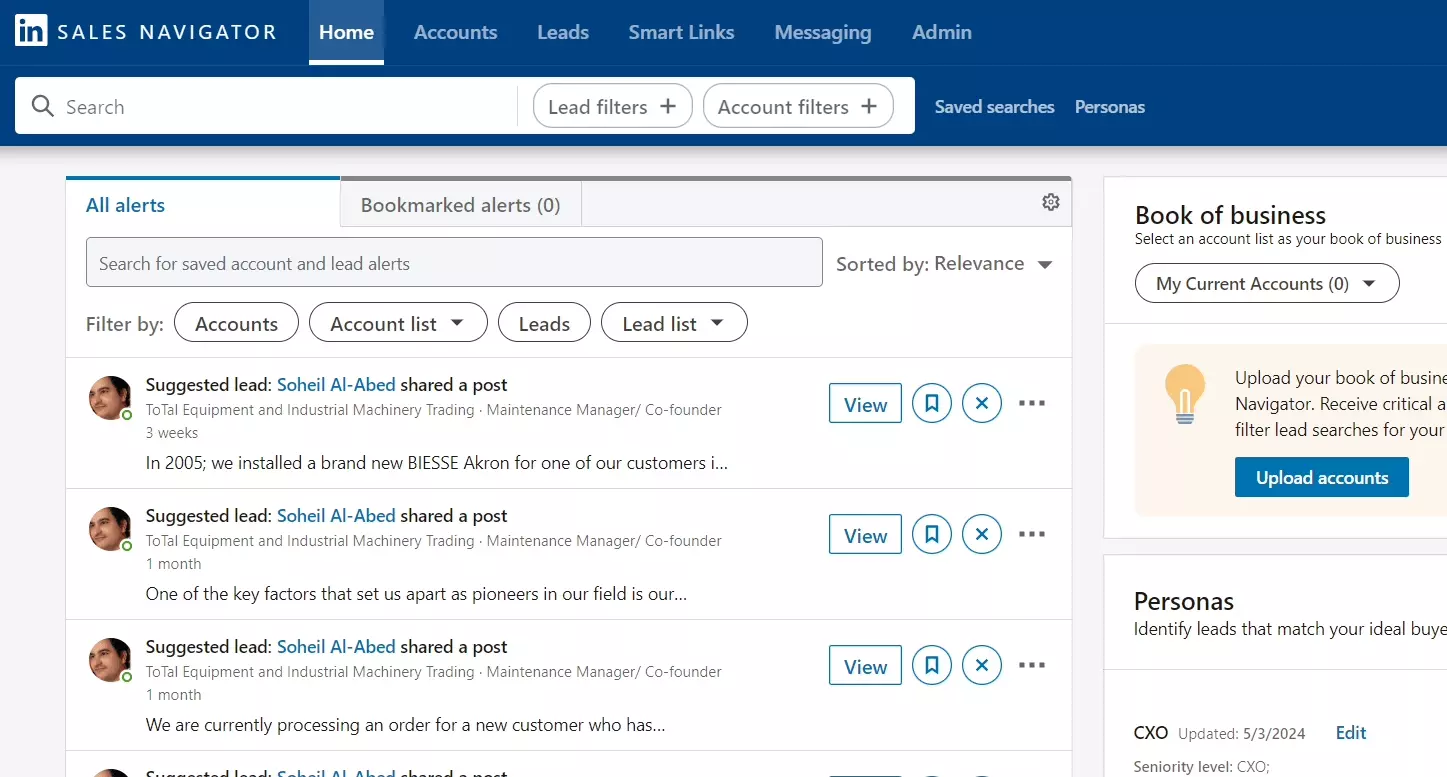
While scraping public LinkedIn profiles is allowed, things are less clear when it comes to Sales Navigator.
Creating fake accounts to scrape data from Sales Navigator is definitely not okay.
When you create fake accounts, scrape data and distribute it, you’re allowing people who didn’t pay for LinkedIn’s premium service, access that information.
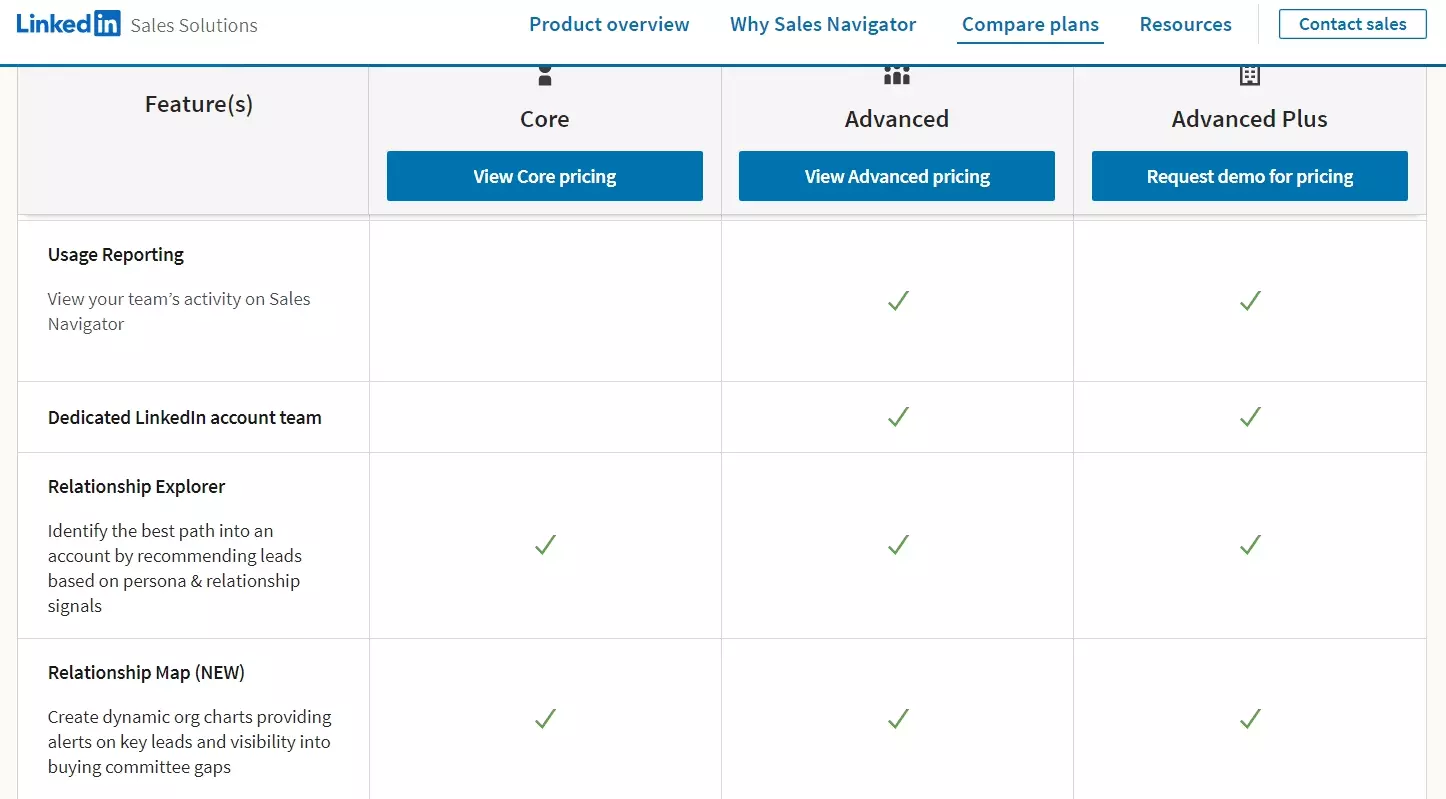
It hurts LinkedIn’s business model by giving people access to data meant only for paying subscribers.
But what if you’re using your own Sales Navigator account?
In my opinion, using automation tools to collect data for personal or business use should be fine—you’re paying for the service and using the data yourself.
As long as you don’t sell or distribute the data to others for commercial purposes, you are good to go.
Sharing or selling the data could violate LinkedIn’s terms and even data protection laws, so it’s best to use it strictly for your own needs.
So how popular scraping tools collect data from LinkedIn legally?
How scrapers legally collect private data from LinkedIn?
For scraping LinkedIn, both scrapers have SOPs.
- Automation at scale
- Don’t overload the service
- Stay compliant to data processing
Both tools ask you to sync your own LinkedIn and Sales Navigator accounts. They don’t create fake accounts to access LinkedIn data.
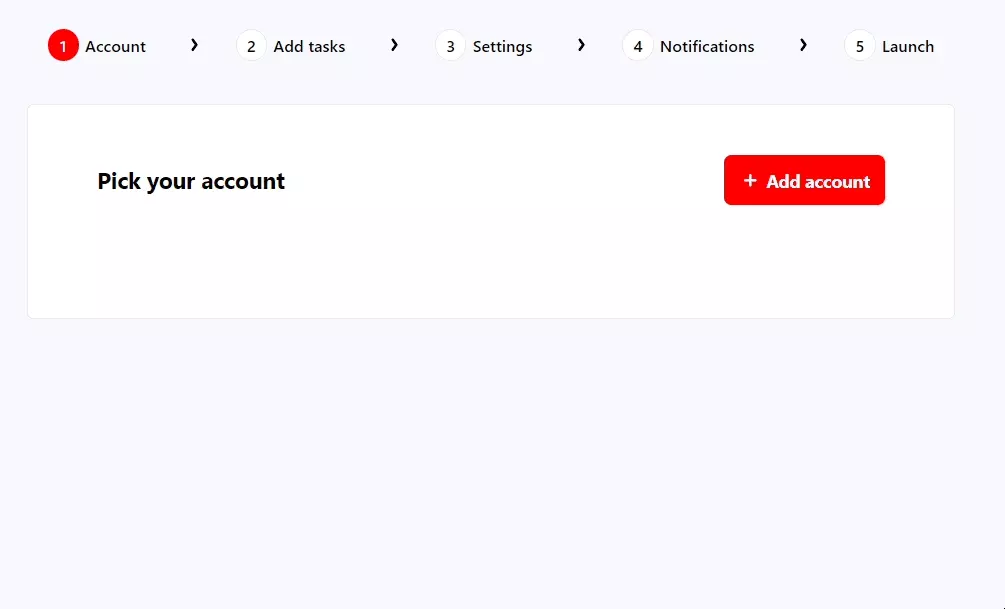
They automate your own LinkedIn account to do what you can do manually but faster.
They comply with LinkedIn’s rate limits to make sure the platform is not flooded with requests. You can’t collect data beyond a certain daily limit.
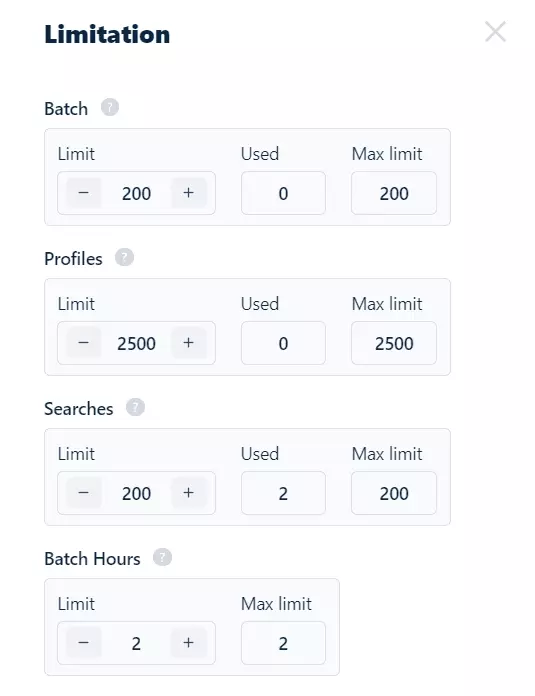
As per GDPR, data collection needs to be limited and for legitimate purposes. These scrapers claim to follow these guidelines.
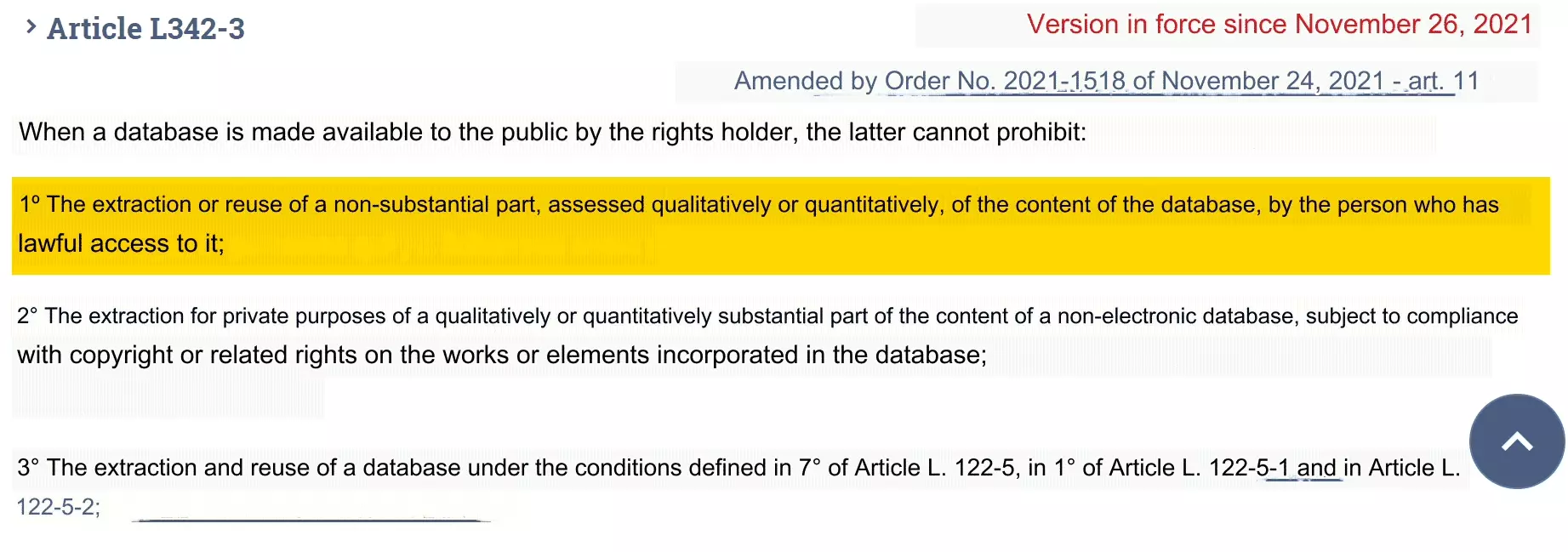
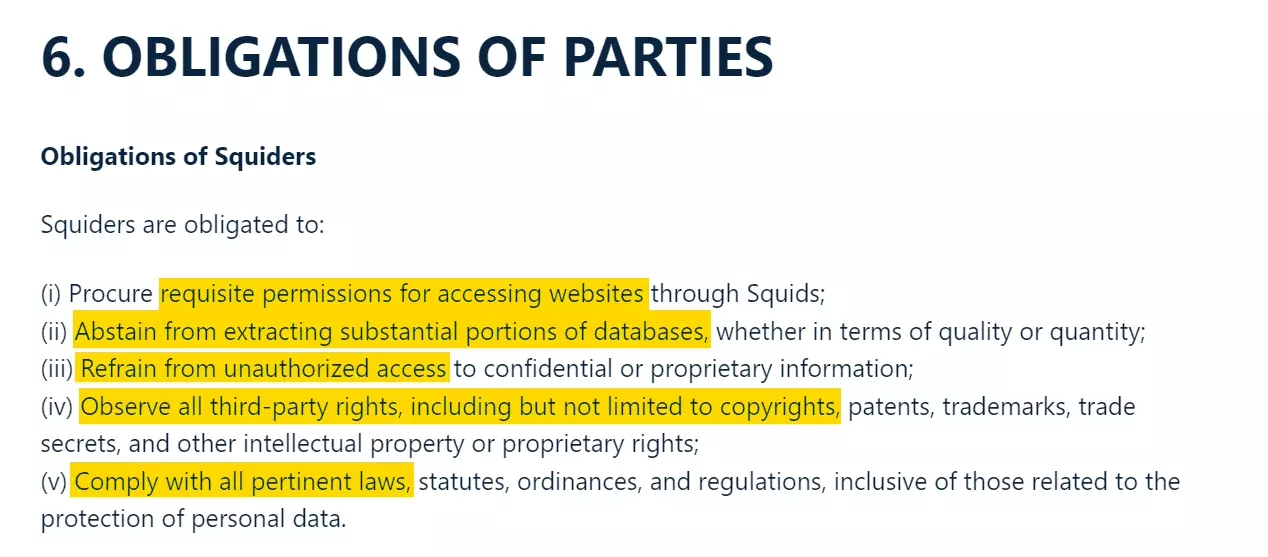
- Legit access and permission
- No over-collection
- No sensitive data collection
- No copyright voilation
- Comply with data processing laws
Besides this, what are ethical considerations to scrape LinkedIn data?
What are the best practices for scraping LinkedIn?
Based on what I’ve learned from studying the laws, cases, and LinkedIn’s concerns, here are some ethical considerations and good scraping practices to follow:
- Scrape public data only — Avoid private or restricted data
- Limit your scraping speed — Too fast can get you blocked
- Follow privacy laws — Especially with personal info like names or emails
- Respect user privacy — Don’t scrape sensitive user data
- Store data securely — Use encryption and other security measures
- Don’t fool the platform — Avoid fake accounts and payment info
- Use ethical scraping tools — Choose tools that comply with legal standards
- Monitor for legal changes — Stay informed about new regulations
- Use the data responsibly — Avoid selling or sharing scraped data if it's not allowed
- Respect opt-out requests — Comply if someone asks to remove their data
- Log your activities — Keep a record of when and what you’ve scraped
Now let me answer some FAQs to clear the confusions you might have.
FAQs
What is LinkedIn automation?
LinkedIn automation means using tools to automate LinkedIn tasks like collecting user profile data, sending connection requests, and messages, engaging with posts, etc.
It saves time, boosts productivity, and helps with networking and lead generation.
Is LinkedIn automation Legal?
Yes, LinkedIn automation is legal if it’s done for personal or business purposes. Doing it for commercial purposes like selling data is not allowed.
Does LinkedIn allow data scraping for personal use?
No, LinkedIn doesn’t allow scraping even for personal use. However, it’s not illegal to scrape data from LinkedIn if you have legit access and follow data laws.
Is scraping job postings legal?
Yes, it’s legal to scrape job postings from LinkedIn. LinkedIn job postings are facts and as a LinkedIn member, you have legitimate access to them.
But using fake profiles to scrape job postings falls under unauthorized scraping.
Is it legal to scrape group members and posts from LinkedIn?
Yes, as a member of LinkedIn, if you have access to a group’s members and posts, you can collect it for personal use like social networking.
Same applies to your LinkedIn connections too. You can scrape them and use the data for legit purposes.
Selling this data is prohibited though.
Is it legal to collect LinkedIn connections activities?
Yes, it’s legal to collect and track LinkedIn connections activities. Since it’s part of LinkedIn automation, you can do it if you’re using your own LinkedIn account.
Conclusion
That’s a wrap on legality of LinkedIn, key laws, and best practices. Again, all the information is based on publicly available facts and is not at all a legal advice.
